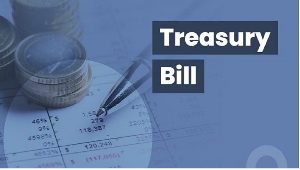 The average yield on Nigerian Treasury bills jumped by 10 basis points to 20.52%
The average yield on Nigerian Treasury bills jumped by 10 basis points to 20.52%
It was a seller market during the midweek in the secondary market as investors unbundled their naira asset portfolio.
The average yield on Nigerian Treasury bills jumped by 10 basis points to 20.52% due to a selling spree on the naira assets.
The bearish pattern has been the same, a move that started on the back of declining spot rates at the central bank primary market auctions. In a successive manner, spot rates on Treasury bills across standard maturities were hacked as inflation began to recede.
Nigeria recorded its second disinflation in the year, after 30 months of successive uptrends, which kept the financial market participants on the edge.
The fixed-income market is, however, struggling to balance disinflation and a high interest rate environment ahead of the monetary policy committee meeting next week.
While the market begins to set expectations, trading activities in the Treasury bills market have continued to experience a bearish session.
On Wednesday, yield dragged as few sellers in the secondary market offered selected mid- and long-dated papers.
As a result, the average mid-rate across the benchmark Nigerian Treasury bill papers jumped. Fixed-interest securities analysts at AIICO Capital Limited expect mixed sentiments tomorrow.
Across the curve, the average yield pared at the short (-1bp) end due to demand for the 85-day to maturity bills (-1bp), but increased at the mid (+25bps) and long (+5bps) segments due to selloffs.
Investors offloaded 127-day to maturity bills in the market and this caused 134bps in its yield.
At the belly of the curve, investors also sold down 190-day to-maturity bills, which resulted in a +74bps yield surge.
Analysts at Cordros Capital Limited said the average yield expanded by 7 basis points to 23.7% in the OMO bills segment in the secondary market.